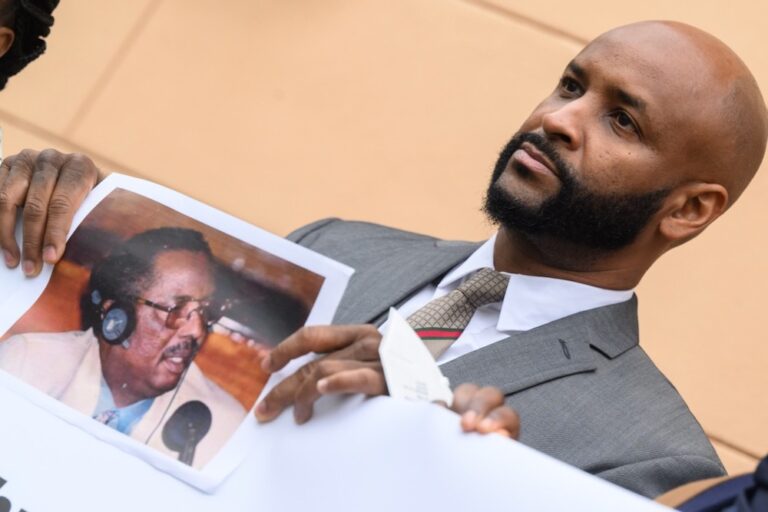(RSF/IFEX) – RSF has voiced outrage and deep sadness over the murder of its correspondent in The Gambia. On the night of 16 to 17 December 2004, Deyda Hydara was shot three times in the head as he left his Banjul office. “Deyda Hydara’s death is a tragedy that profoundly distresses all of our staff,” […]
(RSF/IFEX) – RSF has voiced outrage and deep sadness over the murder of its correspondent in The Gambia. On the night of 16 to 17 December 2004, Deyda Hydara was shot three times in the head as he left his Banjul office.
“Deyda Hydara’s death is a tragedy that profoundly distresses all of our staff,” the organisation said. “We will go to Banjul as soon as possible to help his family and demand a serious investigation by authorities.”
Hydara, aged 58, was the managing editor and co-owner of the private weekly “The Point”, and had been the local correspondent for Agence France-Presse (AFP) since 1974. Fluent in French, he was also one of RSF’s longest-serving correspondents in Africa, putting his experience and authority at the service of press freedom since 1994. His dedication and professionalism had been of great help to his fellow journalists in The Gambia for years. He was married and the father of four children.
He was shot by one or several persons as he left his office shortly after midnight on the night of 16 to 17 December. Two of his newspaper’s employees were injured in the shooting. Police said they were investigating the attack.
The killing comes at moment of tension between authorities and the independent press. On 13 December, the National Assembly passed a law that makes all press offences punishable by imprisonment. Another newly adopted law will increase the cost of an operating licence for newspaper owners fivefold (see IFEX alerts of 15 December and 22 October 2004, 4 September 2003, 1 August, 7 and 2 May 2002).
In a 16 December letter to President Yayah Jammeh, RSF urged him “to reconsider the National Assembly’s decisions and to not sign either of these pieces of legislation into law, so that Gambian journalists are able to work in an untroubled and professional climate.”
Journalists recently campaigned successfully against the introduction of a media commission, which was seen as a mechanism for thought control, and which was finally dissolved on 13 December. The new legislation runs counter to that success and bodes ill for the practice of journalism in the country.


